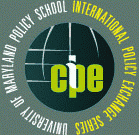Cash Transfers and Guaranteed Minimum Income Programs:
Research, Evaluation, and Policy
Prague, Czech Republic
September 9-10, 2024

-
“Implementing Child Protection Case Management in Cash Plus Programs: Qualitative Evidence from Mozambique’s Child Grant 0-2 years Program”
Paula Dias, American Institutes for Research
Implementing Child Protection Case Management in Cash Plus Programs: Qualitative Evidence from Mozambique’s Child Grant 0-2 years Program
Cash transfer programs are crucial policy instruments for poverty reduction, and have been shown to positively affect nutrition, child and maternal health, child protection, and intimate partner violence (Agüero, Carter, & Woolard, 2006; AIR, 2013; Asfaw, Pickmans, & Davis, 2016; Handa et al., 2014; Hidrobo et al., 2018; Pellerano et al., 2014; Vincent & Cull, 2009; Buller et al., 2018). There is growing interest in cash plus programming, which links cash transfers to complementary interventions and existing services to boost the impacts of cash transfer programs. However, there is relatively little rigorous evidence to show the relative contribution of plus components, or the synergistic effects of cash and plus components (Pasha et al., 2024). In addition, in recent years there have been calls for more implementation- and process-oriented research to understand mechanisms of impact of cash plus and potential barriers to program participation (Savy et al., 2020).
The Child Grant (0-2 years), implemented by Mozambique’s Ministry of Gender, Children, and Social Action in partnership with UNICEF, aims to reduce poverty and social vulnerability by providing cash transfers to the primary caregivers of young children with the overall aim of promoting sustainable economic growth and social equity. During its start-up phase, the cash component of the program consisted of an unconditional transfer of approximately 540 Mozambican meticais (MZN) given on a bimonthly basis to the primary female caregivers of all children between 0 and 2 years old in four districts in Nampula province. Further, the program had a complex “plus” component, which included a case management intervention focused on child protection and gender-based violence in three of the program districts. This cash plus model intended to address the complex and interrelated social, economic and health risks faced by targeted households in Mozambique. The American Institutes for Research (AIR), in partnership with the UNICEF Office of Research – Innocenti, was contracted by UNICEF to conduct impact and process evaluations of the program’s start-up phase between 2019 and 2021.
Drawing on endline qualitative data, this paper will discuss findings on the implementation of the case management component of the program, which primarily targeted female caregivers. The case management component involved household visits, basic psychosocial support and counselling, as well as referrals to social and protection services for beneficiary households classified as most vulnerable to protection risks based on the results of a vulnerability assessment. While the impact evaluation results indicate that the combination of cash and case management had strong impacts on caregiver and child-level outcomes (including psychosocial wellbeing, attitudes and experiences of interpersonal violence, violent discipline of children, and family separation) (Bonilla et al., 2022) the process evaluation noted several implementation challenges that may have hindered impacts. These included challenges in technical and operational capacity of caseworkers, recurrent logistical and transportation difficulties for home visits, and gaps in beneficiaries’ knowledge and understanding of their care plans. The paper offers recommendations for addressing these challenges and highlights the importance of implementation evidence in evaluations of complex cash plus programs.

